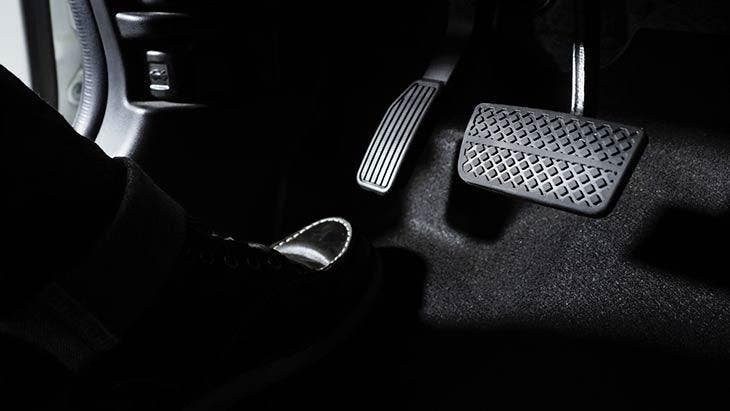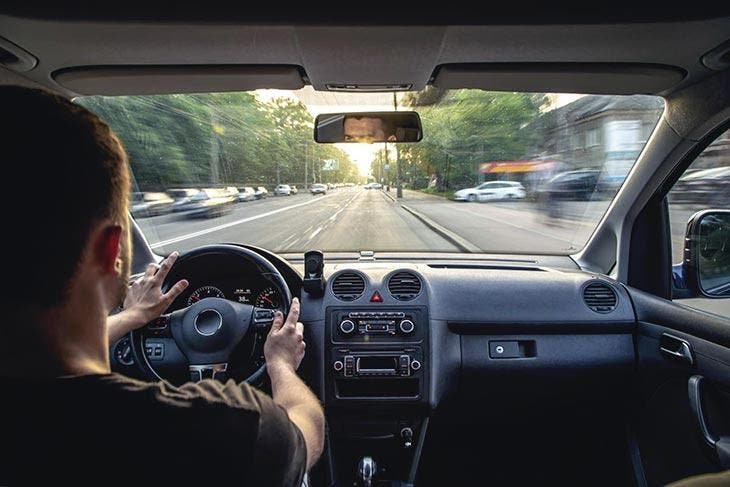In a car, the braking system plays a major role. As you know, it is based on two mechanisms: the handbrake and the foot pedal. When they fail, safety is no longer optimized and this can lead to a dangerous situation for the driver, passengers and even other motorists.
Are your brakes broken and no longer working? It doesn’t have to be! Don’t stress, stay calm and follow our tips to keep you safe. Here are some reliable solutions to repair and keep your car brakes in good condition.
Braking system failure: why do the pedals lock?

The most common cause of brake failure is the loss of fluid from the brake system. This fluid transfers the force you exert by pressing the brake pedal to the discs that slow down and stop the wheels of your car. You can usually detect a possible leak before you hit the road, as it is visible under the vehicle. If this is the case, do not drive until you have repaired the leak and replaced the brake fluid. The other cause usually stems from a bad brake cylinder. This is the part of the braking system where fluid is compressed. If it is not of good quality or if it is defective, it can lead to a loss of power of your brakes. In addition, a part called a “servo brake” can also go wrong. This component has the task of facilitating braking by further assisting the driver: it takes the force generated when you press the pedal and amplifies it. However, if this part is less efficient, the force needed to slow down and stop your vehicle will not be generated.
Remark : If you suspect brake failure on the road, do not continue driving. This can be dangerous, so it’s better not to take any chances. Get on the side of the road as soon as possible and safely, before calling for help.
A sudden brake failure is a worst-case scenario that all motorists fear. Yet, if this ever happens to you, do not panic. Some manoeuvres can be deployed to better understand the situation. According to specialists, here are 4 tips that every driver should follow to avoid the slightest danger, both for himself and for others.
- Release the accelerator, downshift slowly to reduce the car’s momentum, and turn off cruise control (if applicable).
- If the road is relatively clear and you still have full control of the vehicle, turn on your hazard lights and honk your horn to warn other drivers around you. Even if they don’t understand your exact situation, they will be aware of a possible problem and walk away from you.
- Pump the brake pedal with force and speed. Most modern vehicles are equipped with dual braking systems that independently control the front and rear brakes. Generally, aggressively pumping them can be enough to engage half of the brakes to slow you to a standstill. It won’t work if both halves of the dual system fail.
- Apply the emergency brake carefully. This system won’t stop you, but it will slow you down considerably. Be sure to engage him carefully to continue to maintain control of your vehicle.

Several signals can alert you that your brakes are no longer working properly. Here are a few.
- Obvious clue: the appearance of an indicator light in the form of an exclamation sign indicates either low brake fluid pressure or worn brake pads. Therefore, whatever the cause, your car must be checked urgently to identify the source of the problem. You must bring it back to a mechanic as soon as possible.
- Notice that your car pulls slightly to one side while you brake? Several causes can explain it. Either the tire pressure is low, or one of the brake pads is worn or maybe the brake calipers are stuck. If filling the tires doesn’t solve the problem, better Worth hiring a mechanic to check the car. If the vehicle pulls to one side even without braking, it means that one of the brake calipers is permanently locked. So you need to fix it before it causes any further damage.
- Do you feel that the brake pedal and the car itself vibrate during braking? This probably indicates that a brake is dying. The main reason often results from the wear of the brake pads. Other explanations include sticky brake calipers and unbalanced brake rotors. The former only vibrate the steering wheel when braking, while the latter vibrate both the car and the brake pedal. As a precautionary measure, it is recommended that you check your braking system as soon as possible. This will also save you money, as the longer you delay the deadline, the heavier the damage could become.
- Finally, a brake failure should never be taken lightly. A stitch in time saves nine! You should drop off your car at the garage as soon as you suspect the slightest problem with your brakes. Especially if your vehicle is an older model, because it probably does not have some of the much more advantageous emergency safety mechanisms that modern cars are equipped with.





